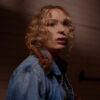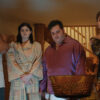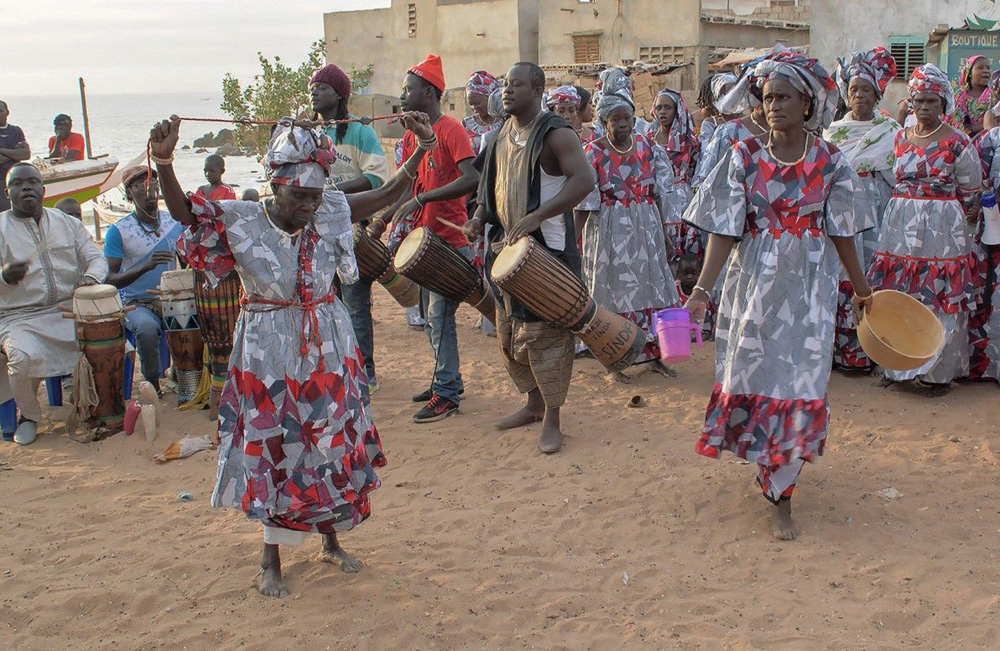In his work as a professor at NYU, Manthia Diawara has been increasingly confronted with a modern issue as he grades papers and has to wonder on occasion if a student has consulted with artificial intelligence for assistance.
“We’re having meetings now at the university to warn us against students [using] artificial intelligence students to write their papers and so far I have not been worried,” says Diawara, who still believes if you ask a question about Hemingway or Faulkner in a certain way, the answer requires more nuance than a machine would allow. “I challenge my students, [thinking] what is there that the people who put the data in the machine cannot do? I always look for that moment of trembling, that moment of opacity, that moment of doubt, that moment that’s not literal.”
However, this isn’t to say that Diawara hasn’t been concerned and his eye for such things sharpened as he made “AI: African Intelligence,” his latest film, which began production well before the introduction of ChatGPT and other powerful AI instruments became more widely available to the public. After being asked of the possibilities for collaborations between AI and the arts, Diawara was inspired to look towards Senegal where the Lebu people find nourishment in a spiritual ceremony known as the Ndeup where a literal wash coincides with a cleansing of the soul as community leaders dance according to tenets of their tradition. Locals swear by it when suffering from maladies that have affected their ability to walk and suddenly find themselves joining the festivities feet first and it is presided over by a 100-year-old woman named Mere-Bi, whose own vitality suggests she has a secret to living a long life.
The community may be untouched by technology, but Diawara ponders what is lost as much of the world moves forward and communities like the Lebu are left behind, not bound to be part of the models that artificial intelligence is trained on and where many will ultimately seek out their information from. The director brings together a few experts in the field to observe the Ndeup and gives audiences the same privilege where Mere-Bi is deeply attuned to the needs of those around her and the trust that exists there allows for an understanding that transcends the logic that machine learning depends on to operate properly, revealing the blind spots of the technology without becoming too arcane and emphasizing the threat of wiping certain places off the map completely when they don’t fit a rigid definition. As a certain homogeneity can be expected to set in as the world is flattened for ease of comprehension elsewhere, “AI: African Intelligence” captivates in terms that are ineffable and shows how meaning is made collectively, perhaps able to be condensed for facts but only truly understood when accompanied by emotion.
After premiering at Berlinale in 2023, “AI: African Intelligence” is having a special screening at the Maysles Documentary Center in New York on March 28th and Diawara graciously took the time to talk about how he ended up finding such an inspired way into a controversial topic, how the film proved to be an education for himself and bringing genuine poetry into the film.
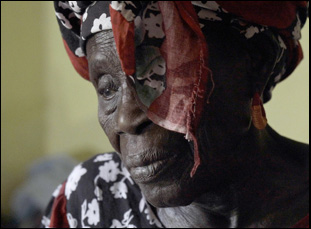
I was invited to Ars Electronica, a festival in Lienz, Austria, [where] people in the humanities like myself were invited to come and say what we think about artificial intelligence. I went there without giving it too much thought and basically [brought up] the usual questions and complaints about its relation to humanity. Every time a language disappears, it’s part of humanity that dies and they said, “This is very, very interesting. Can you invite some of the scientists to your studio?” I didn’t want to bring them to New York [where I was a professor], so I said, “Okay, let me take them to Africa.”
I’m from Mali, and Mali and Senegal used to be the same country and after living in this country for more than 50 years, I bought a house in a coastal area about 50 kilometers from Dakar, the capital city of Senegal. Every night there you hear drumming, but it becomes part of the environment. You don’t pay too much attention to it. But we went to my place in Senegal and while I was waiting for them [to arrive], I hear this drumming and I began to explore it. It turns out that there was drumming for possession rituals, and this is why in the beginning I talked about Mali. In Mali, they basically warned us as kids to stay away from these things as Muslims. “They are the dance of the devil. Don’t get too close to this.” So when I invited these people to visit me in Senegal, I said I want to do something that would challenge me to [understand something] I was not paying attention to, so let’s all do something that we’re going to discover all together. Of course I did some research, tried to find out about [these drumming rituals], and then the priestess [Mere-Bi] became my friend. So when the scientists came, they visited her and then when they went back and made a report for Ars Electronica, [they came back to me and asked] “Why don’t you make a film on this?”
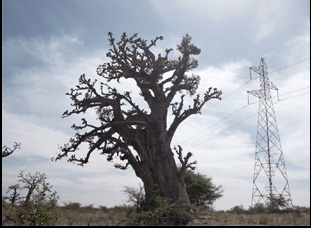
After that [initial experience], I spent some time going to see Mere-Bi and Mere-Bi, whose age is indeterminate — the village people think she is 115 years old, by their way of counting, and then my white European [colleagues] say she’s at most 95 years old — we had this incredible relationship. My mother passed around 1969, and [it felt like] Mere-Bi adopted me in such a way that she kept reminding me of my mother, “Don’t be afraid. Don’t do this.” So we become very close. Mere-Bi had come to my place and blessed it. She told me that they had been wanting to organize a big ritual celebration to heal some people, but that they didn’t have the resources to do that — the drummer’s band cost a lot of money and all kinds of things, so I said, “I’m going to invite my people. I’ll fund the celebration.” The village all thanked me after the five days. They said, we haven’t seen this kind of ritual take place since we were young people. So we did something that forced all of us to participate in the celebration. I was discovering it and the village people, some of them who were younger, they were discovering it [too].
Usually, Mere-Bi will do the diagnostics and then find out if your situation is just to wash you and give you a little bit of medicine or bless you, She will decide if you are far gone and you need a real healing ritual, and then if you need that, they may do it one or two days, but the full ritual entails five days. And I said, “Let’s do the full ritual, because I really want to understand this.” The digression I should bring up is that since the end of the 19th century, Senegal is one of the few countries in Africa to add this therapy [practiced by spiritual leaders] to Western medicine. When there were people who would come to the European doctors [who] were really far gone mentally, [the doctors] would say, “Let’s go to the villages and find out what kind of rituals you can do to help them,” so there was this collaboration and they’re consulting with priests like Mere Bi still today.
I’m not trying to say I’m the first person discovering this, but If you go to Milan, if you go to Venice, you see all these Senegalese walking down and they’re working with these people. This is something that is ancient, but also in today’s world and Mere-Bi said, “When you do this [film], make sure all of them come and see this. I want them to see it. Because the healers also compete among themselves [to see] who has more power. You’re in Los Angeles, so you understand [the importance of] this kind of publicity. [laughs] So the five days was really to do a total cleansing. We had two patients in the film who were dancing with her, but [it was an event] for the whole village. Aside from the imam and the elderly, everybody came, especially the children and for people like myself who never paid attention to this, this was very important for me.
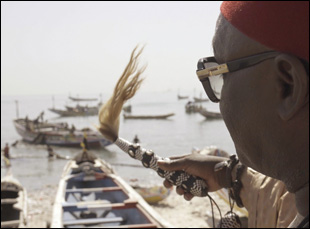
Two things work for the editing. First of all, we had a lot of material — five days, and then before and after the ritual, we did some filming. But I’m working these days more and more with [the influence of] a Caribbean poet philosopher Édouard Glissant, who believes that a problem in the world since the mechanical, technological, and digital revolution has been to emphasize transparency and linearization. You frame something, and all the truth will go inside that something, and then you create a story and it becomes a believable story, either scientifically or in literature. But actually, while you do that, you are discarding everything that does not fit in this proof that you have created. Basically, it takes us back to Plato’s cave where the poet was kicked out, so let’s just talk about logic.
Édouard Glissant’s poetry believes that we all have an opacity. You don’t even know yourself totally, let alone knowing the person you are talking to, so what you do is you approach each other, Glissant would call it, tremulously — trembling with the other’s trembling — and you begin to create a common ground of opacity and your opacities begin to come together. So I went to the film with that hesitation. I’m not an anthropologist. I’m coming from literature and cinema and I wanted to use part of my own confusion as part of making the film, not so much as I’m the African who went to America for years and I can come [back] and rationalize you guys, but I kept that in mind and took it seriously.
The other thing that helped [guide] me is that my editor Mohamed Al Mubarak is a young man, about 26 years old, [who’s] an Arab poet from Bahrain. I’m from a Muslim background, and I don’t practice anymore, but when I explained the story to him, I said, “Well, you are Muslim. You understand that people think that this is the demon’s dance.” And he said, “They actually do it here [in Bahrain], too. They just don’t want people to know.” Apparently this kind of ritual is not just in Africa and African diaspora. The Christians have it. All kind of people have it. So he reassured me. And then he really got into the idea that on the one hand, I have my experts because that’s the story began [with my] bringing scientists to this place, but on the other, we all are lost in this [experience of the ritual]. How do we find our way? And it is not through expertise, but through feeling, through emotions, and through rhythm and this young man was so into that. So I had a lot of help and once Mohammed and I got into the rhythm of the film, the editing became very easy.
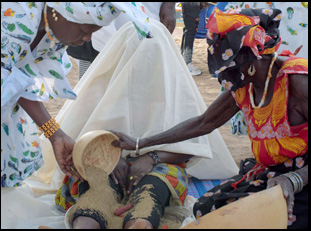
I’ll tell you my problem. When I write a script and read it, I don’t know how to read, so I realize that when I turn off the lights, put my images on, then I begin to speak to the images and they’re telling me things and I’m telling them things. I begin to talk to Mere-Bi. I begin to talk to other people. I do things I don’t think I will do in reality. When I say [in the film], for example, that my friend Jean Paul, who is not African, knows these things better than I do, I’m being honest to the image and to myself. But those kind of things don’t seem comfortable in a reading, and the images become memory, but they also become present and future. This is what I like about them. During the shooting, you have one thing in mind — I’m running after different people. Follow this woman. And sometimes I’m lucky, sometimes I’m not so lucky, and in many ways, what the images are telling me sometimes become very different from what I had in mind when I was shooting.
The other confession is that my teacher was Jean Rouch, [considered] the father of cinema verite and trans cinema. He did a film called “The Mad Masters,” an incredible film about possession. So I didn’t come to this completely innocent. Jean Rouche’s whole [conceit] in that film was [asking] was he possessed. He thought that the camera saved him because he was looking in the lens all the time with both eyes. Therefore he was not possessed. So I had Jean Rouch in mind when I was making the film. But in the editing when the drums come as a way of remembering the situation, I get possessed by the images.
“AI: African Intelligence” will screen on March 28th in New York at the Maysles Documentary Center at 7 pm.
